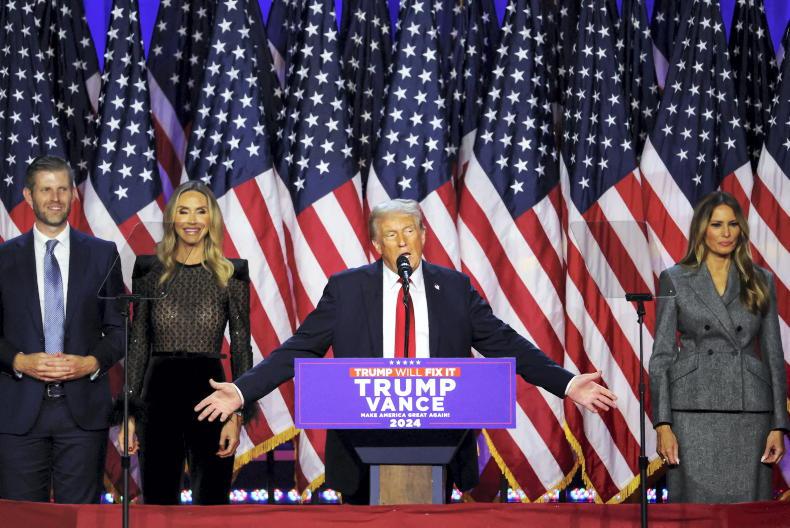The Guardian newspaper at the weekend reported that “leading trade and industry figures in the US” are now suggesting that the incoming US administration may sign up to a trade deal with the UK that doesn’t include access for US hormone fed beef.
This, along with chlorinated chicken, was previously considered a red line issue for the US, and was a major cause of the break down in TTIP negotiations between the EU and US back in 2016.
If the US were to accept access to the UK for non-hormone fed beef and chlorine washed chicken, it would be a game changer in the trade negotiation.
It would mean a considerable volume of US beef getting access to the UK market in addition to the access granted by the UK in trade deals made with Australia and New Zealand since Brexit.
It is also thought that incoming US president Donald Trump would be amenable to a trade deal with the UK.
He was a supporter of the UK decision to leave the EU, and his brief in appointing Jamieson Greer as US Trade Representative is to “open export markets everywhere”.
That would auger well for a deal, if the US dropped the hormone-fed beef requirement in a resumed UK negotiation which had stalled during the Biden presidency.
Tough year for US processors
A new high value export market would be good news for US beef factories who have had a tough year in 2024. Both Tyson Foods and Cargill, two of the big four US beef processors, have recently announced job losses.
Tyson is planning to close a factory in Kansas in February 2025 with 800 job losses, while Associated Press reports that Cargill is planning to cut 5% of its global workforce, which could impact up to 8,000 people.
The difficulty for US processors comes from not being able to get sufficiently increased beef value to cover cattle prices that have remained above the equivalent of €6/kg as the US cattle herd fell to its lowest point since 1951.
The US remains the world’s largest beef exporter after Brazil, and while volumes are down this year, they still exported just over 1m tonnes by the end of October 2024.
One of the major markets for US beef exports is China who have taken 177,542 tonnes to the end of October, making it the fourth largest export market (by volume) for US beef this year.
With the incoming Trump administration threatening tariffs on US imports from China, this market is vulnerable to retaliatory tariffs.
No doubt the US beef exporters would welcome a high value alternative export market option as a backup plan, even if the UK would be a relatively low volume market at least initially.
Canada–UK trade negotiation
If the US was to relax its position, it would be interesting to see if Canada did the same.
The UK-Canada trade deal negotiation broke down in January this year with access for hormone fed beef the major stumbling block.
The Canadian government had stood firm on their beef negotiating position as had been demanded by the Canadian beef industry and Canadian Cattle Association (CCA).
The UK and Canada had agreed to roll over the CETA trade deal with the EU pending the negotiation of a separate UK-Canada deal.
However, when these talks broke down, the roll over ended and trade between the UK and Canada within the framework of the Comprehensive and Progressive Agreement for Trans-Pacific Partnership (CPTPP) agreement.
Both the UK and Canada are members of this along with 10 other pacific rim countries.










SHARING OPTIONS